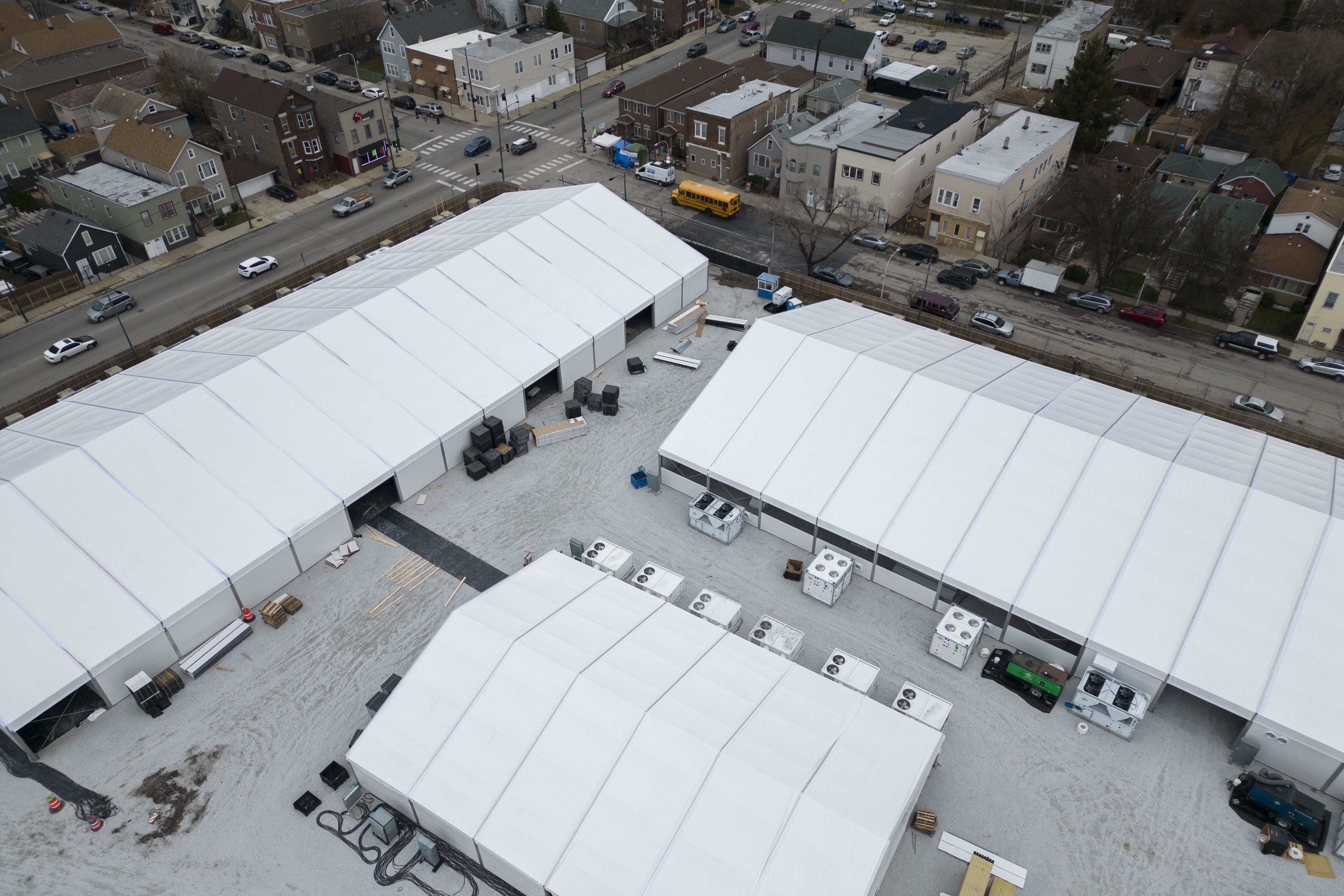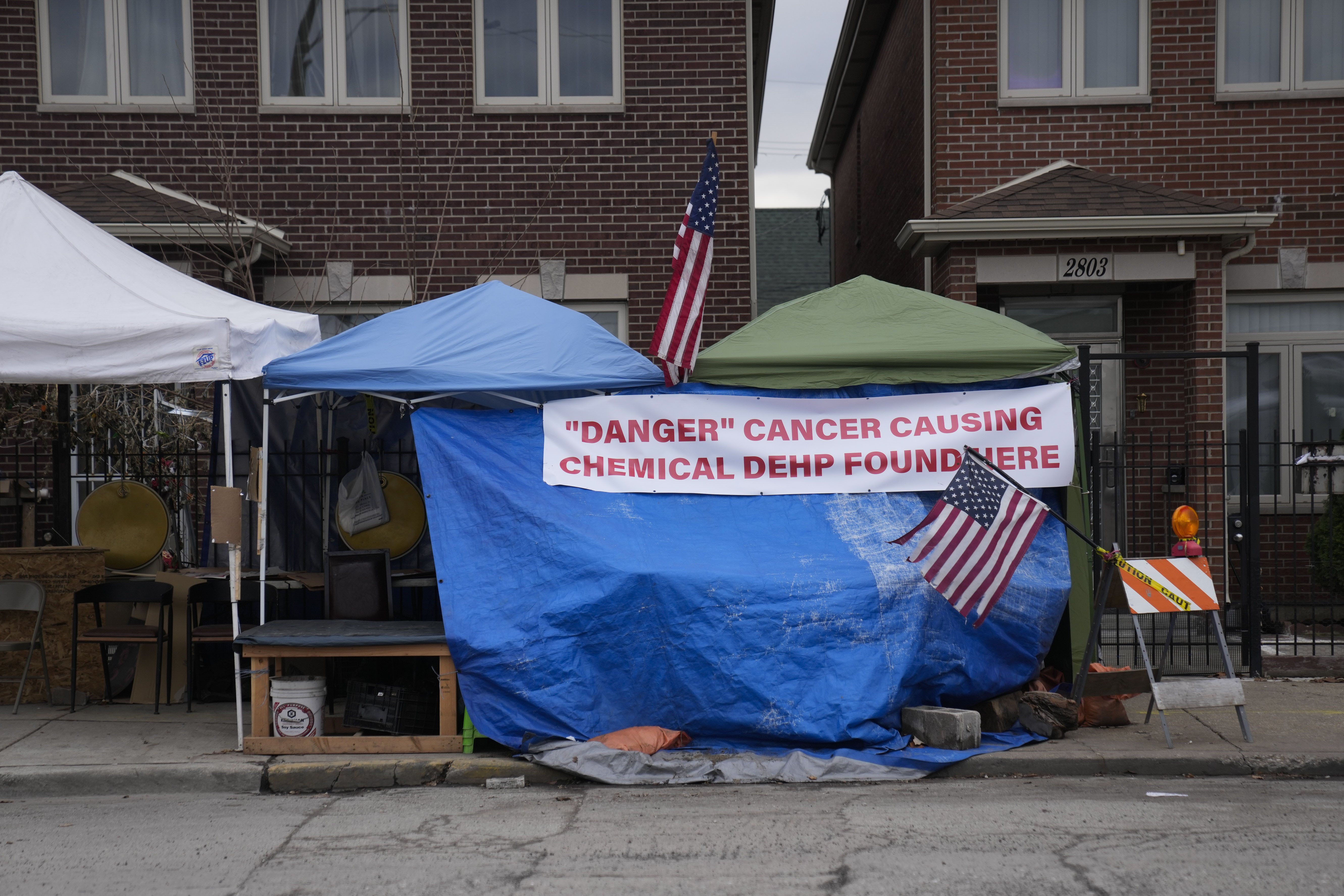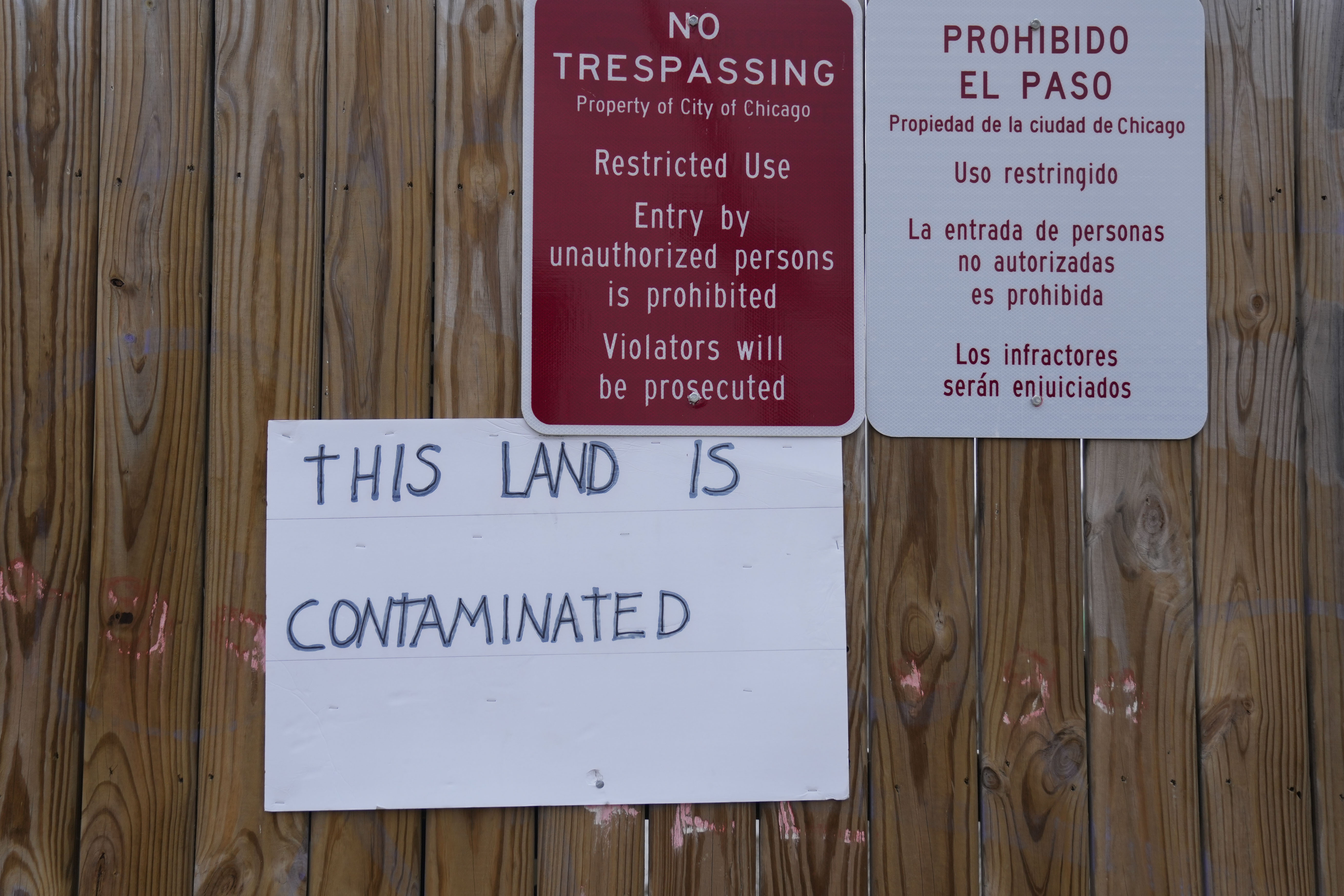The battle over a Brighton Park migrant camp has come to an end, and the local alderperson is sharing her thoughts.
Earlier this week, Gov. Pritzker stopped construction of a large tent structure to house migrants on the lot of 38th and California over environmental concerns.

Tensions had been high in the Southwest Side neighborhood since the city announced plans to build on the 10-acre lot. Community members, along with Ald. Julia Ramirez, 12th Ward, voiced their opposition to construction because of the lack of communication and transparency from the Johnson administration.
In late October, Ald. Ramirez and a staffer were swarmed by people at a protest aiming to stop the so-called winterized tent camp from being built.
Now, the state is putting an end to this fight after an 800-page environmental report found the presence of heavy metals and toxic chemicals on the site.
The Illinois Environmental Protection Agency also found city efforts to sample and clean the land insufficient and did not meet state standards for residential use, even if it was temporary.
Below are a few questions and answers from Reset’s interview with Ald. Julia Ramirez. They have been edited for clarity and length.

What was your initial reaction to the news that migrants will not be housed at this site in your ward?
When I found out that they were stopping the whole project, I had very mixed emotions, you know? I feel disappointed because we did all of this investment in time and money, and that we won't be able to assist in the crisis. At the same time, I'm happy because I was worried and I didn't feel like we were considering the toxic findings on the site enough.
What has the back and forth been like? Last week, we reported that construction was starting and equipment was being dropped off, and now we’re here.
I don't think that the process has been as fluid. I had promised my residents that we would not make a decision and we would not move forward, especially with construction, without having the environmental report. And it was very difficult because throughout the process I knew that there were findings, but I didn't have any documents. I wasn't given any further information. Then remediation happened.
I had asked the administration to share those details because it was important to work through them before officially making the move to construct. And then a week ago on Friday, I got a call that they were going to continue to move forward with construction before the environmental report was out. At that point in time, I felt that I had given enough grace, that I was trying to be as cooperative as possible, and I no longer was able to do that.
It sounds like transparency was an issue throughout.
It was really difficult. I felt as if things were changing, maybe on a day-to- day basis. I felt as if I was being listened to and considered in one moment, only to find out that things were moving in a direction that I did not feel was healthy or safe.
I'm trying to build up the trust that people feel that they haven't been given since the very beginning. And we've had different moments that I think we could have switched and built up that trust, and unfortunately we weren't able to meet that.

What are your thoughts on the presence of those heavy metals at the site?
From the very beginning, an organization in my ward, Neighbors for Environmental Justice, had already done a lot of research around the site being historically known for heavy manufacturing. So, it came to no surprise because we knew that there were going to be findings. But, it's not good to find out later as construction had already begun because then we're not able to backtrack or do the things that the state wanted us to do.
And the whole point is that if we would have had these conversations in October knowing that this site has been zoned for manufacturing and done the tests before, we would have given ourselves enough time. Two months worth of time to work on this and build it out.
I want to make it very clear, I think that some of the protests have been not wanting to welcome or not wanting to provide shelter. And so it may feel like a win in that aspect. It doesn't feel like a win for me because they were really looking forward to moving people to this site. And now that this site is no longer viable, I really worry about how we're moving forward.
Moving forward, what are you going to be looking out for and advocating for in future migrant shelter developments?
We need to have these conversations very early on. We need to make sure that it checks certain boxes in regards to safety and we need to bring the community in.That has to be very clear, especially if we're putting folks right in the middle of a neighborhood. There were big concerns about public safety and I believe that public safety is providing people with shelter and feeding people, but we also need to make sure that it works for everybody.
Click the audio player to hear the full interview with 12th Ward Alderwoman Julia Ramirez.




